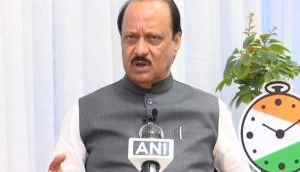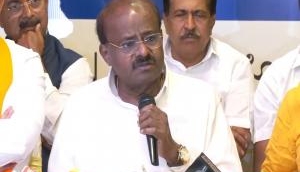
Congress MP and former union minister Shashi Tharoor recently participated in a debate at the Oxford Union. The motion that was put before the house was 'whether Britain should pay reparations for its colonial excesses'. While speaking for the motion, the Thiruvananthapuram MP put forth an array of forceful arguments within India's context.
What are Reparations?
Reparations, simply, the action of amending a wrong in the form of payment or any other gesture. Various countries have paid reparations - of war, slavery, colonisation, or oppression. The most famous example is of Germany's Holocaust reparation to Israel. President Obama had recently had made an argument for the slavery reparations to the United States' black community.
Here are the major points from Tharoor's address:-
- Before the arrival of the British colonisers, India's share of the world economy was 23 per cent. It was down to less than four per cent when they left.
- Britain's industrialisation was based on India's de-industrialisation. Tharoor here cites the example of India's handloom weavers, whose livelihood was stifled by an oppressive tax regime. India's share of world trade went down from 27 per cent to less than two per cent.
- One fifth of the elite families in Britain in the 19th century owed their money to transport and three million African workers
- In 1833, when slavery was abolished a compensation of 20 million pounds was given to those who suffered loss of property and not those who suffered from slavery
- Between 15 to 29 million Indians died in British-induced famines. Tharoor cites the example of the Great Bengal Famine during which essential supplies were diverted from civilians to stock piles in Europe.
- In the World War I, One sixth of all the forces that fought in the war were Indian. 54,000 Indians lost their lives in the war; 65,000 were wounded; and another 4,000 remained missing or jailed. Indian taxpayers had to cough up a 100 million pounds (in that time's money). India supplied 70 million rounds of ammunition, 6,00,000 riffels and machine guns, 42 million garments, 1,73,000 animals, 370 million tonnes of supplies, and 1.3 million personnel.
- The total value of everything that was taken out of India for the war was 8 billion pounds (adjusted to inflation). Of Britain's total 3 billion pounds war debt, 1.25 billion was owed to India and never actually paid.
- Railways and roads were laid to serve British interests and not the mass transportation needs of the Indian population. Building one mile of Indian railways costed double of what it costed in Canada or Australia. Britain made all the profits, controlled the technology and supplied all the equipment. All the profits came to private British enterprise at Indian public risk.
- British aide to India is about 0.4 per cent of the Indian economy. The Indian government spends more on fertiliser subsidies.
- Maybe today's Britons are not responsible for today' reparations...but the fact remains that many today's problems in these countries were (sic) the direct result of colonial experience, so there is a moral debt that needs to be paid.
- We are not talking about reparations as a tool to empower anybody. They are tools for you to atone for the wrongs that have been done.







![BJP's Kapil Mishra recreates Shankar Mahadevan’s ‘Breathless’ song to highlight Delhi pollution [WATCH] BJP's Kapil Mishra recreates Shankar Mahadevan’s ‘Breathless’ song to highlight Delhi pollution [WATCH]](https://images.catchnews.com/upload/2022/11/03/kapil-mishra_240884_300x172.png)

![Anupam Kher shares pictures of his toned body on 67th birthday [MUST SEE] Anupam Kher shares pictures of his toned body on 67th birthday [MUST SEE]](https://images.catchnews.com/upload/2022/03/07/Anupam_kher_231145_300x172.jpg)






